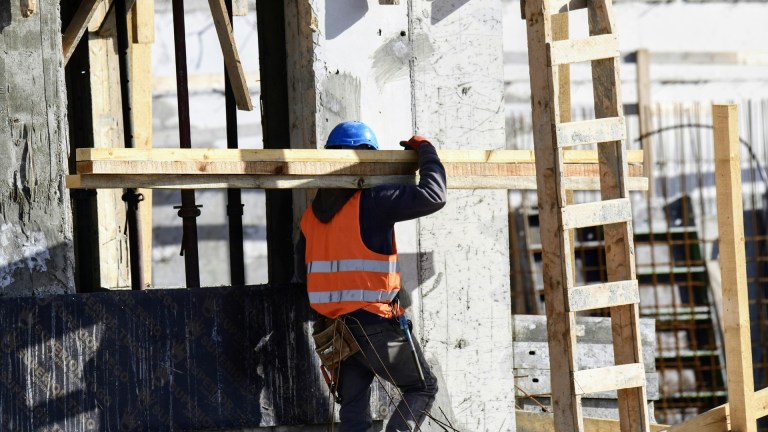“The Government will have to find a solution that is workable for tenants and fair for landlords. The gravity of the situation means it should be treated just the same as other sectors of the economy and society that have a clear roadmap out of lockdown.
“Helping tenants pay their rent arrears would come at a cost, but would ultimately prevent significant expenditure on homelessness assistance further down the line.”
Betts has asked the Government to come forward with its own plan to keep renters in homes long-term, suggesting specially arranged housing payments from local authorities or existing policies such as low-interest loans like those adopted in Scotland and Wales.
The Government have set a target of ending rough sleeping by 2024. We will hold them to this standard
However, the Sheffield South East MP warned paying off rent debt is the “simplest and most straightforward way” to help both landlords and renters.
Ben Beadle, chief executive of the National Residential Landlords Association, agreed. The NRLA has warned as many as 840,000 tenants have found themselves in arrears due to the pandemic. Beadle called the lack of a clear strategy from the Westminster Government a “disappointment” and insisted direct payments to landlords should be among measures taken to avoid a rent debt crisis.
Debt charity StepChange’s Richard Lane said now is “the time to act”, adding: “The committee’s favoured solution of discretionary payments can be implemented quickly, and we also see potential for a wider package of grants and no-interest loans to give renters a sustainable way to recover and to help them keep their homes.”
Advertising helps fund Big Issue’s mission to end poverty
The Ministry for Housing, Communities and Local Government gave no indication of any plans to cover renters’ arrears. A Government spokesperson said: “We’ve acted to give renters robust protection during the pandemic, with longer notice periods of six months and banning bailiff enforcement of evictions for all but the most serious cases until 31 May.”
The report also said there was a risk of the Everyone In scheme’s initial successes being undermined as it was “too easy for people to fall through the gaps”.
The committee found that migrants who are not entitled to state support due to their immigration status were not always included in the initiative, which has protected 37,000 people in emergency accommodation throughout Covid-19.
Betts said Westminster should provide funding and clarify the legal powers of local authorities to support all rough sleepers – regardless of immigration status – during the pandemic. A landmark High Court ruling earlier in March found councils did have the legal right to provide support to migrants living under the no recourse to public funds (NRPF) condition.
There must be an emphasis here on preventing homelessness before it happens
The UK Government should also establish a taskforce to establish the link between NRPF and homelessness, the committee said, or risk failing to end rough sleeping before the next general election.
Advertising helps fund Big Issue’s mission to end poverty
Betts added: “The Government have set a target of ending rough sleeping by 2024. We will hold them to this standard.”
However, a Government spokesperson said: “Everyone In is still ongoing and for the committee to suggest otherwise is misleading. We have spent over £700 million this year and are spending £750 million next year on tackling homelessness and rough sleeping. We are also working with partners to learn any lessons from the pandemic and as part of our ambitious plans to end rough sleeping for good.”
Hitting that target will also be difficult without boosting the supply of genuinely affordable homes – the committee said 90,000 social rented homes a year are needed for the next decade.
Building homes is a key part of the long-term strategy to end homelessness beyond Covid-19, according to Jon Sparkes, chief executive of Crisis.
“Today’s report is so important as it highlights the need to look beyond the emergency response to achieve lasting change and real progress towards ending homelessness,” he said.
“There must be an emphasis here on preventing homelessness before it happens. Addressing the poor supply of social homes and a financial support package for renters in arrears due to the pandemic must be an integral part of this.”
Advertising helps fund Big Issue’s mission to end poverty





